Publications
Articles, publications, books, tools and multimedia features from the U.S. Institute of Peace provide the latest news, analysis, research findings, practitioner guides and reports, all related to the conflict zones and issues that are at the center of the Institute’s work to prevent and reduce violent conflict.
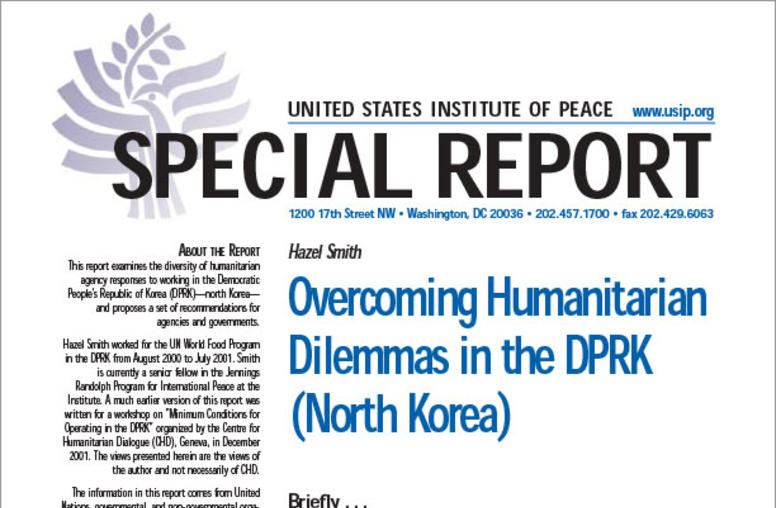
Overcoming Humanitarian Dilemmas in the DPRK (North Korea)
Summary In 1995 the DPRK (North Korean) government appealed to the international community for assistance to cope with gross food shortages, which threatened starvation for its people. UN humanitarian agencies that had had some relationship with the DPRK since the 1980s—the United Nations Development Program (UNDP) and the World Food Program (WFP)— responded to these appeals and became fully operational and resident in the country after 1995.

The Great North Korean Famine
A compelling and revealing book for specialists and general readers alike,The Great North Korean Famine takes us not only behind the well-guarded borders of the brutally incompetent “Hermit Kingdom” but also into the policymaking labyrinth where ethics and politics clash in the struggle to shape foreign policy.
Truth Commission: South Korea 2000
Truth Commission: Presidential Truth Commission on Suspicious Deaths Duration: 2000 – 2004 Charter: The Special Act to Find the Truth on Suspicious Deaths Commissioners: 9 for each of two terms Report: Public report

Negotiating on the Edge
Drawing on interviews with an eminent cast of U.S. officials and marshalling extensive research on North Korea past and present, Scott Snyder traces the historical and cultural roots of North Korea's negotiating behavior and exposes the full range of tactics in its diplomatic arsenal.
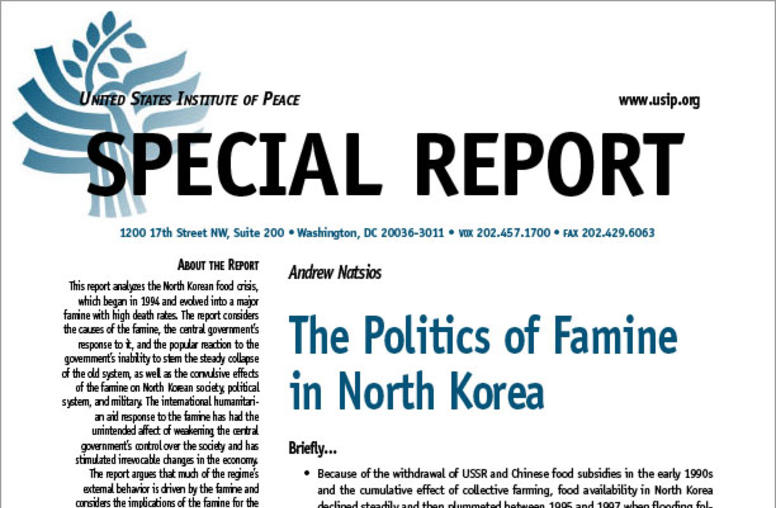
The Politics of Famine in North Korea
Summary Because of the withdrawal of USSR and Chinese food subsidies in the early 1990s and the cumulative effect of collective farming, food availability in North Korea declined steadily and then plummeted between 1995 and 1997 when flooding followed by drought struck the country. From 1994 to 1998, 2-3 million people died of starvation and hunger-related illnesses, and the famine has generated a range of social and political effects.
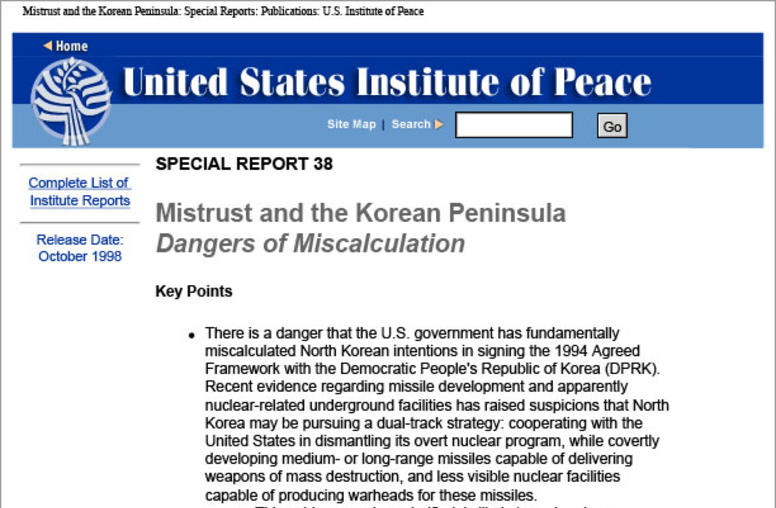
Mistrust and the Korean Peninsula: Dangers of Miscalculation
An unwillingness to challenge North Korea now with a more concerted diplomatic and deterrence policy, lest it precipitate a repeat of the 1994 crisis, risks being confronted later by a qualitatively different North Korean military threat. There is a significant danger of miscalculation: while previous North Korean induced crises have strengthened Pyongyang's negotiating leverage in general and perhaps the Korean People's Army's strong hold on power in particular, there is a serious risk that ...
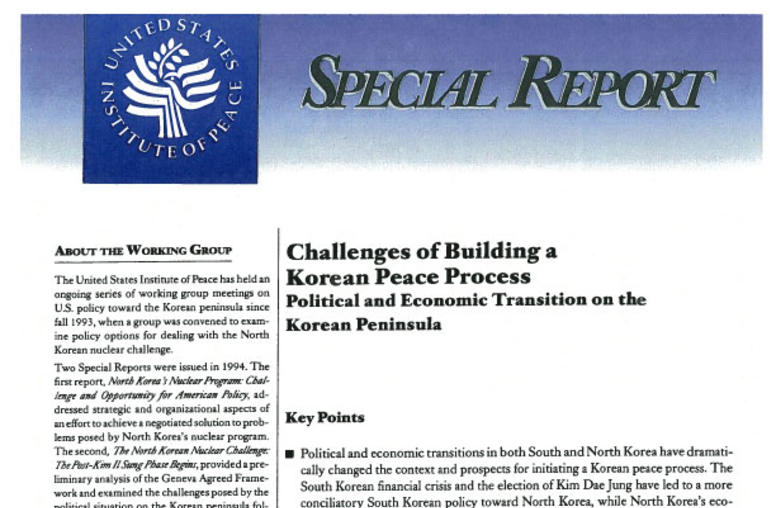
Challenges of Building a Korean Peace Process: Political and Economic Transition on the Korean Peninsula
This Special Report, authored by Program Officer Scott Snyder, is based on meetings of the working group that focused on political, economic, and security developments in North and South Korea.
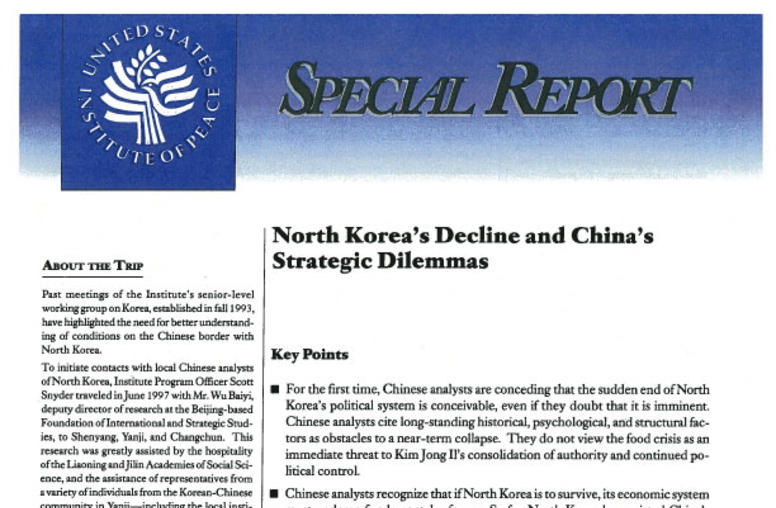
North Korea's Decline and China's Strategic Dilemmas
For the first time, Chinese analysts are conceding that the sudden end of North Korea's political system is conceivable, even if they doubt that it is imminent. Chinese analysts cite long-standing historical, psychological, and structural factors as obstacles to a near-term collapse. Chinese analysts recognize that if North Korea is to survive, its economic system must undergo fundamental reforms.
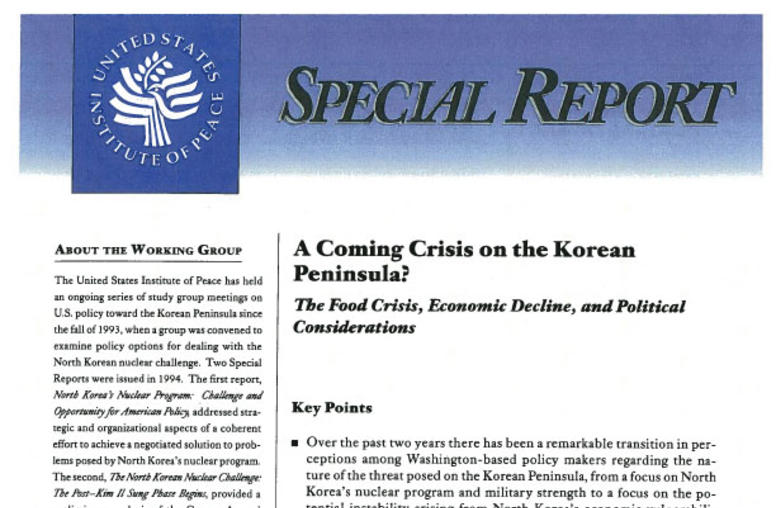
A Coming Crisis on the Korean Peninsula? The Food Crisis, Economic Decline, and Political Considerations
Over the past two years there has been a remarkable transition in perceptions among Washington-based policy makers regarding the nature of the threat posed on the Korean Peninsula, from a focus on North Korea's nuclear program and military strength to a focus on the potential instability arising from North Korea's economic vulnerabilities and political uncertainties. The major challenge for the United States is to pursue its strategic objectives in Northeast Asia by dealing with the prospect...
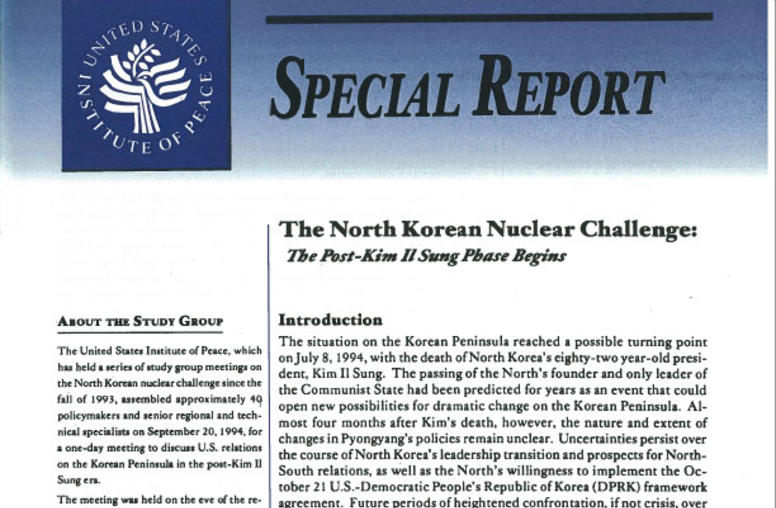
The North Korean Nuclear Challenge: The Post–Kim Il Sung Phase Begins
The situation on the Korean Peninsula reached a possible turning point on July 8, 1994, with the death of North Korea's eighty-two year-old president, Kim Il Sung. The passing of the North's founder and only leader of the Communist State had been predicted for years as an event that could open new possibilities for dramatic change on the Korean Peninsula. The United States, South Korea, and North Korea's other neighbors face significant challenges in determining policy adjustments that might...